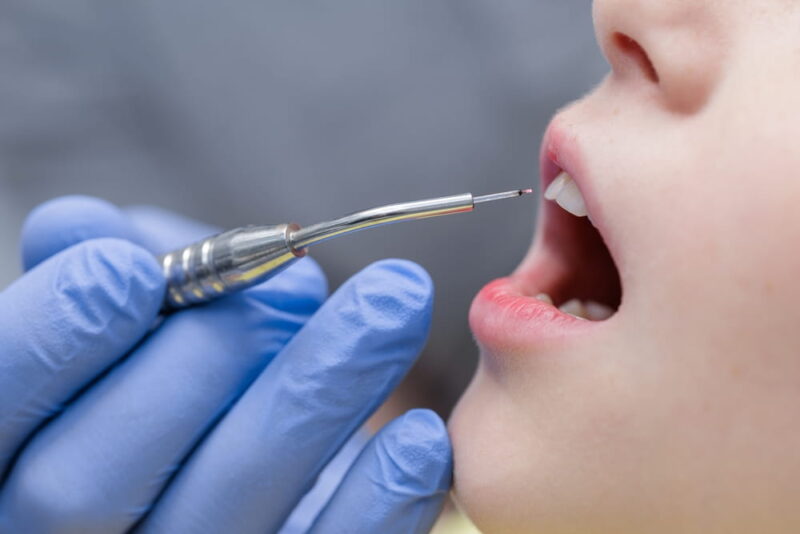As a parent, it’s natural to be concerned about your child’s health, especially when it comes to their teeth. Dental health is an essential part of overall well-being, and while cavities are common, you may wonder just how many cavities are considered “normal” for kids. Understanding how cavities form, how to prevent them, and why regular dental check-ups are important can help ensure your child’s smile stays bright and healthy.
Understanding How Cavities Form
Cavities, also known as tooth decay, form when plaque—a sticky, bacteria-filled film—builds up on the teeth. This plaque interacts with food particles, especially sugars and starches, creating acids that attack the tooth’s enamel. Over time, these acids can wear down the enamel, leading to holes or cavities in the teeth. If left untreated, cavities can grow, causing pain and even infection that could require more extensive treatments, such as fillings or even root canals.
For children, cavities tend to form in the areas of the teeth that are harder to clean, such as the back molars. The grooves in these teeth can trap food particles, making them more susceptible to plaque buildup. Additionally, children’s teeth are still developing and may not have the same level of protective enamel as adult teeth, which can make them more vulnerable to cavities.
What’s Normal: How Many Cavities Are Typical for Kids?
The number of cavities a child develops varies depending on several factors, such as their diet, oral hygiene habits, and genetics. However, the general trend is that children aged 6 to 12 years are at the highest risk for developing cavities, particularly if they consume sugary snacks, drinks, or don’t practice good oral hygiene. On average, it’s not unusual for children to develop at least one or two cavities during this period.
That being said, it’s essential to recognize that cavities are preventable. If a child develops multiple cavities, it may signal that certain habits or factors are increasing their risk of decay, such as poor brushing habits or frequent consumption of sugary foods and drinks.
Preventing Cavities: Tips for Parents
While it’s common for kids to get cavities, it’s definitely something that can be prevented with a little effort from both parents and children. Here are some ways you can help reduce your child’s risk of developing cavities:
1. Encourage Proper Brushing and Flossing
Good oral hygiene is the first defense against cavities. Parents should start brushing their child’s teeth as soon as they emerge, using a soft toothbrush and a fluoride toothpaste. For children aged 3 and under, use a rice-sized amount of toothpaste, and for children over 3, use a pea-sized amount. Make sure to brush twice a day—once in the morning and once before bed.
When your child is old enough to brush on their own, supervise them to ensure they’re brushing for at least two minutes, covering all surfaces of the teeth, including the back molars. Flossing should also begin when two teeth touch. This helps remove food particles and plaque that brushing alone may miss.
2. Limit Sugary Snacks and Drinks
One of the leading causes of cavities is sugar. Sugary snacks, sodas, and juices can increase the amount of acid that attacks your child’s teeth. Encourage healthier alternatives like fruits, vegetables, and water. If your child does have sugary treats, it’s better to have them as part of a meal rather than as a snack in between, as this limits the duration of time their teeth are exposed to sugar.
3. Use Fluoride
Fluoride is a mineral that helps protect and strengthen tooth enamel, making it more resistant to decay. Many communities add fluoride to their water supply, but if your child doesn’t drink fluoridated water, ask your dentist about fluoride treatments or supplements. Additionally, most toothpastes contain fluoride, which can further help in preventing cavities.
4. Sealants for Extra Protection
Dental sealants are thin, plastic coatings that are applied to the chewing surfaces of the back teeth. Sealants fill in the grooves and pits on the teeth, making them smoother and easier to clean. This can significantly reduce the chances of cavities forming in those hard-to-reach areas. Ask your dentist if sealants are a good option for your child.
5. Regular Dental Check-ups
One of the most important things you can do for your child’s oral health is to schedule regular dental visits. Dentists can detect cavities early, even before they’re visible to the naked eye. Early intervention can prevent the need for more invasive treatments later on. During routine exams, the dentist will also check for signs of other oral health issues, such as gum disease or alignment problems.
Why Regular Dental Check-ups Matter
Taking your child for regular dental check-ups is vital for their oral health. Experts recommend scheduling your child’s first dental visit by their first birthday, or as soon as their first tooth appears. This allows the dentist to check for early signs of tooth decay and provide guidance on how to take care of their teeth. After the initial visit, it’s typically advised to have check-ups every six months.
Here are some benefits of regular dental visits:
- Early Detection of Cavities: Cavities can be identified before they become painful or require extensive treatment. If your child has early signs of decay, the dentist can apply fluoride or sealants to prevent the cavity from progressing.
- Professional Cleaning: Even with excellent brushing habits, children can still miss spots that lead to plaque buildup. A dental cleaning every six months ensures your child’s teeth are fully cleaned, preventing tartar buildup, which can lead to gum disease and other issues.
- Dental Education: Regular visits also provide an opportunity for the dentist to teach your child proper oral care techniques and reinforce healthy habits. The more children understand why good oral hygiene is essential, the more likely they are to practice it consistently.
Set Your Child Up for a Lifetime of Healthy Smiles
While it’s normal for children to develop cavities, it doesn’t mean that cavities are inevitable. By helping your child practice good oral hygiene, maintaining a healthy diet, and visiting the dentist regularly, you can significantly reduce their risk of cavities and ensure their smile stays healthy. Instilling good habits now will benefit them not only throughout their childhood but also into their adult years, setting them up for a lifetime of healthy teeth and gums. So, while a couple of cavities may be typical during childhood, with proper care and attention, they certainly don’t have to be a frequent occurrence.
Choose Aloe Dental Wellness For All Your Dentistry Needs
At Aloe Dental Wellness, you can expect the very best in dental care with Dr. Daniela Cadavid. Dr. Cadavid is glad to offer a brand-new office equipped with the latest technology and services in both English and Spanish to UCSB students and staff, as well as the surrounding communities. Aloe Dental Wellness in Santa Barbara County is proud to provide general, cosmetic, and emergency dentistry services to meet the needs of your entire family as well. For an appointment, call us at 805-454-7727 today.




